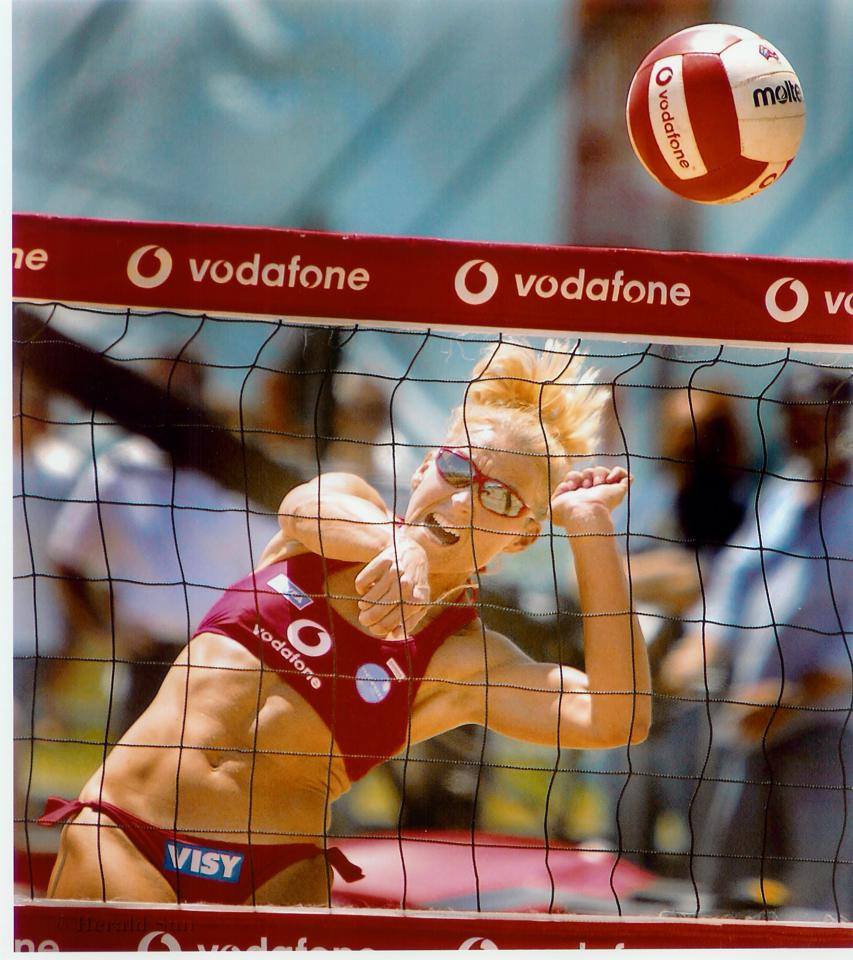Transitioning from Sports to the Corporate Athlete
If you’ve ever changed careers or moved into a new position within your existing field, you know that the transition can be a challenging one. Research shows that skilled workers will change jobs nine times during the course of their careers, which has the potential to create a tremendous amount of both personal and professional disruption.
Athletes are no different, and my good friend Kerri Pottharst, a decorated Olympic medalist in Beach Volleyball (Gold, Sydney 2000, Bronze, Atlanta 1996) helps them transition from careers in sports to business. Kerri’s own transition from hours of training as an elite athlete to a successful businesswoman follows a proven blueprint that she teaches others to build and execute.
The following is from Kerri’s writings on “Corporate Athlete Training”, a program that she delivers within the context of other nutritional, fitness and wellness services. For more information, go to www.kerripottharst.com
————————————————————————————————–
Today’s challenging business and social climate requires you to be perfectly fit – mentally, physically and emotionally. Regular movement, consistent and adequate sleep, great nutritional habits and a winning mindset all add up to peak performance.
Corporate athletes are under more pressure and face more serious consequences if they fail. They have more demands on their time and there is no real “off-season”. The work-life balance is always precariously held by conflicting loyalties to family, business and self. And it is no longer about time management. It’s about ENERGY management. To succeed, excel and optimize your energy creation and usage, there are four areas we help you to plan and develop:
Mindset
You are what you think. And if you have a clear plan of what it is you want to accomplish, this is half of the journey. Sure, hard work and resilience may turn you into a good performer, but if you are looking for peak performance, you must think like a champion AND make a plan of how to get there. As Brian Tracy says, there are no “accidental” over-achievers. Sorting through the normal periods of doubt and limiting beliefs will come and go, but the mental aspect of success must be planned and practiced.
Nutrition and Hydration
The health consequences of not eating well are well documented in all mediums of traditional and social media. And while it has become easier to “eat right”, there is still a tendency to grab the wrong foods when in a time crunch. One simple thing to do is plan for strategic snacking while at work, by bringing a few simple items with you from home that steer you away from the sugar-laden vending machine. Bananas, raw nuts and homemade granola are a few examples.
And where coffee, alcohol and energy drinks may seem to be the right fit for a moment, over the long run too much of any of these liquids will do more harm than good. Water is the key fluid you have got to take in, and if you weigh 150 pounds you should be drinking 100 ounces of water per day. The amount will flux in relation to your weight and exercise level.
Movement
YOUR CHAIR IS KILLING YOU! If you didn’t already know this, sitting in front of your computer for hours at a time does long term damage to many different parts of your body.
Many companies now offer “exercise at work” options to include on-site gyms, classes ranging from yoga to Pilates and more. Taking the time to step out for an hour and attend one of these sessions puts a whole new perspective on the day. And there is more and more empirical evidence around High Intensity Circuit Training, or HICT. This is a “less time, more effort” way to get an impactful workout, one that will ultimately restore your energy and increase your productivity.
Recovery
You all know a workaholic, or maybe you are one yourself. We all need a break from the rigors of work. Take a TIMEOUT! For some, a formal sabbatical from career is required when things get way out of balance. But before you get too burnt out, make sure you take regular breaks, daily breaks to “sharpen the saw”. One simple way to refresh that often gets overlooked is to get the proper amount of sleep. Seven to eight hours per night is suggested for most people.
Other ways to keep mentally refreshed include meditation, or just mindfulness of being in the present and concentrating on your breathing, There are piles of scientific evidence that show the benefits of slowing the mind down for even 10 minutes per day, and how this helps to reset your mind and body. Basic stretching routines can also help you to maintain flexibility, especially as middle age approaches.
The blueprint is above for how to make a successful transition, or stay on the path if you are already minding the important factors to creating and managing your energy, and being a well-rounded corporate athlete.

